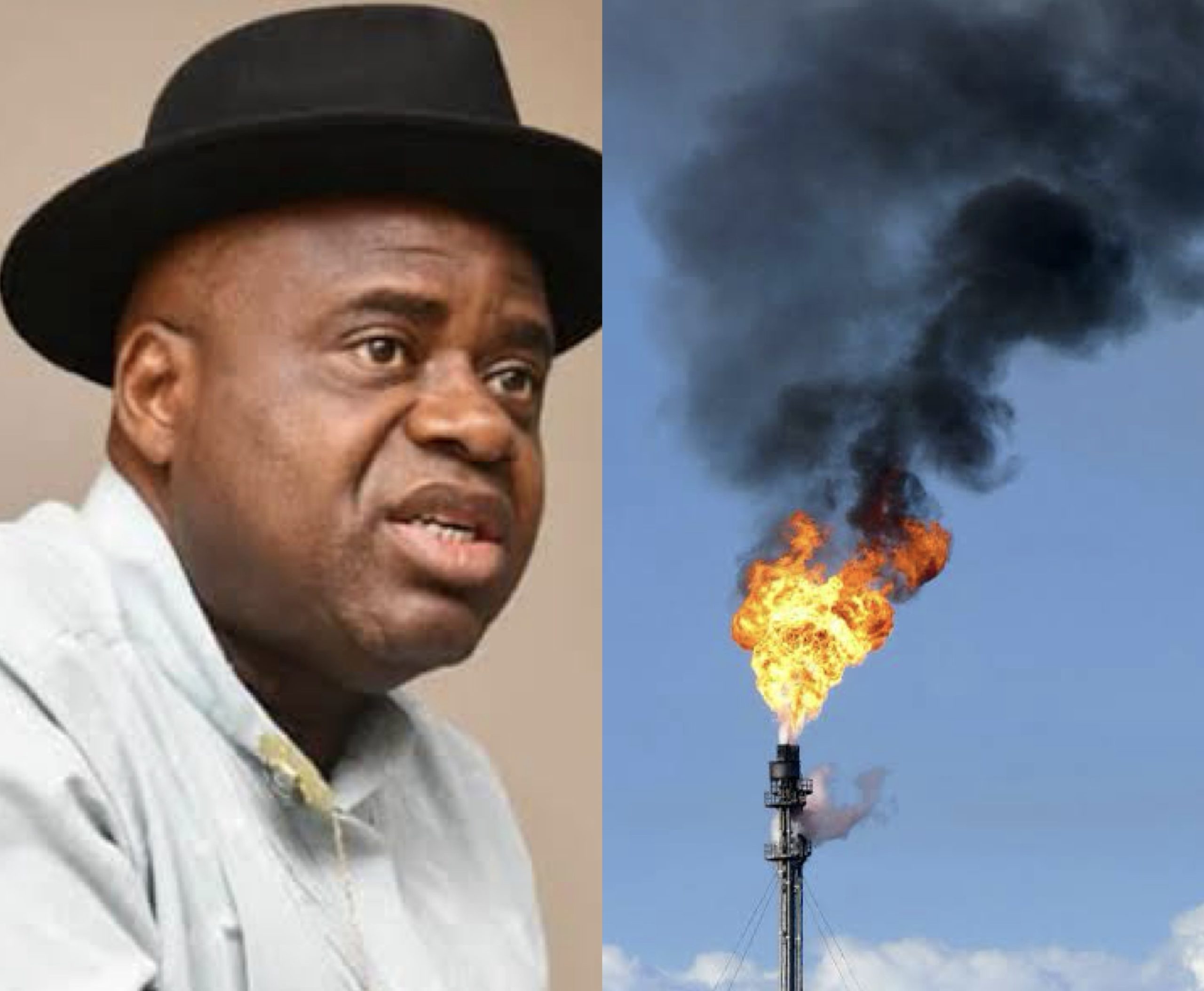Gov. Diri Accuses Federal Govt of Depriving Bayelsa of Revenue From Gas Flaring
Governor Douye Diri of Bayelsa State on Monday bemoaned the management of revenues from gas flare fines and royalties paid by oil firms.
Mr Diri said the oil producing states and indeed the communities in the region that bear the brunt of gas flaring have been deprived of the revenue accruing to the federal government over the years.
He also lamented the situation in which oil companies situate their administrative offices far from their operational bases and “shortchanging” states like Bayelsa of personal income and other taxes.
Mr Diri stated these during an expanded State Executive Council meeting during which the final report of the Bayelsa State Oil and Environment Commission was presented in Government House, Yenagoa.
Commenting on the report titled “An Environmental Genocide: Counting the Human and Environmental Cost of Oil in Bayelsa, Nigeria,” the governor said the impact of oil pollution on both humans and the environment was alarming.
While formally dissolving the commission with effect from 31 October 2024, Mr Diri said it was saddening to read that “Bayelsa is estimated to have suffered over a quarter of total recorded instances of oil pollution in Nigeria.
“The staggering disparity underscores the inequitable distribution of environmental burdens. Bayelsa State bears 25% of Nigeria’s oil pollution. The sheer scale of devastation paints a dire picture, disconcertingly reminiscent of an environmental Armageddon,” the governor said.
Mr Diri also stated that according to the report, “between 1970 and 2014, Nigeria earned an estimated trillion dollars in oil revenue, and since 2006, oil produced in Bayelsa generated over $150 billion for the Federal Government and billions for the international oil companies that operate its wells. On average, oil produced in Bayelsa is responsible for approximately $10 billion in government revenues per year.”
He said that the state was encouraged by the revelation in the report that “in most advanced industrialised countries, two basic principles – ‘polluter pays’ and ‘no fault liability’ – form the cornerstone of the legal regime for regulating extractive industries. Taken together, they mean that those that own and operate facilities are responsible for the damage caused by their pollution even if they are not at fault.”
Describing the report as heartbreaking, he lamented that the magnitude of devastation across communities paints a grim picture of their survival.
Mr Diri assured that a committee would be set up to look into the commission’s recommendations with a view to ensuring its implementation.
He echoed the commission’s recommendation that “concerted international action to generate and invest at least $12 billion over the course of 12 years to repair, remediate and restore the environmental and public health damage caused by oil and gas and to lay the foundations for Bayelsa’s just transition towards renewable energy and opportunities for alternative livelihoods”” justifies our persistent claim for reparation.”
Mr Diri commended his predecessor, Seriake Dickson, for his vision in establishing the commission in March 2018, as well as its chairperson, John Sentamu, and his team for their “exceptional work.”
Bayelsa paying heavily for other’s enjoyment
In his remarks, Mr Sentamu, who is the former Archbishop of York, said the oil companies were negligent in their operations and called for the creation of an estimated $12 billion fund to support remediation efforts.
Also speaking, the chairperson of the Bayelsa State Traditional Rulers Council and Ibenanowei of Ekpetiama Kingdom, Bubaraye Dakolo, who described the event as one of the greatest achievements in governance, said there was finally evidence to prove the devastation to both human and environmental health caused by oil and gas exploration and exploitation.
Mr Dakolo said Bayelsans were paying heavily for the enjoyment of the oil and gas resources by others outside the state and the region.
Other members of the commission present at the event included the Chair, Expert Working Group of the Bayelsa oil commission and Director, Politics and Governance, Overseas Development Institute, United Kingdom, Kathryn Nwajiakwu-Dahou, Head of the School of Law, University of Bradford, United Kingdom.
Others are Engobo Emeseh, a professor in the Department of Environmental and Urban Change at York University, Canada; Anna Zalik, professor emeritus at the University of California, Berkeley, California; Michael Watts, a long-term Non-Resident Fellow at the Swedish Collegium for Advanced Study in Uppsala, Sweden; and Isaac Osuoka, a coordinator at Social Action International.
Also Read: Federal University of Agriculture, Bassambiri: Governing Council Meets Gov. Diri, Set for Swift Establishment
Also present were Harvir Kaur Sanga from the commission secretariat, Head of Business and Human Rights and Deputy Programme Director, Amnesty International, United Kingdom, Mark Dummet, Chairperson, Human and Environment Development Agenda (HEDA), Olanrewaju Suraju as well as the Executive Director, Health of Mother Earth Foundation, Nnimmo Bassey, and environmental activist, Annkio Briggs among others.













